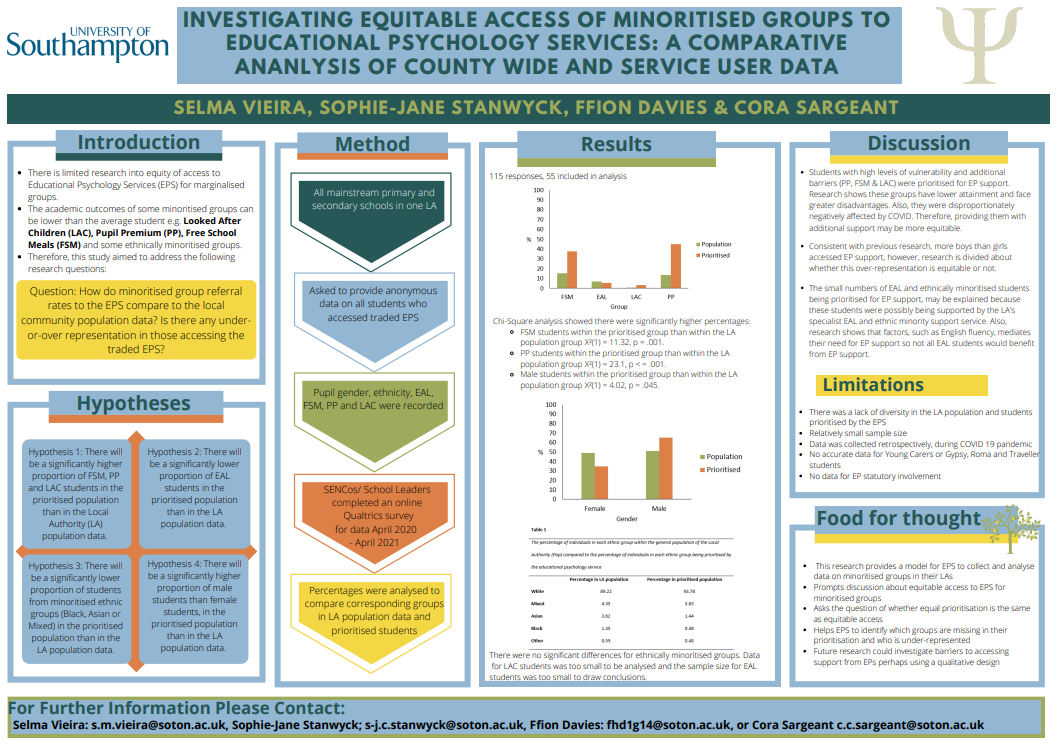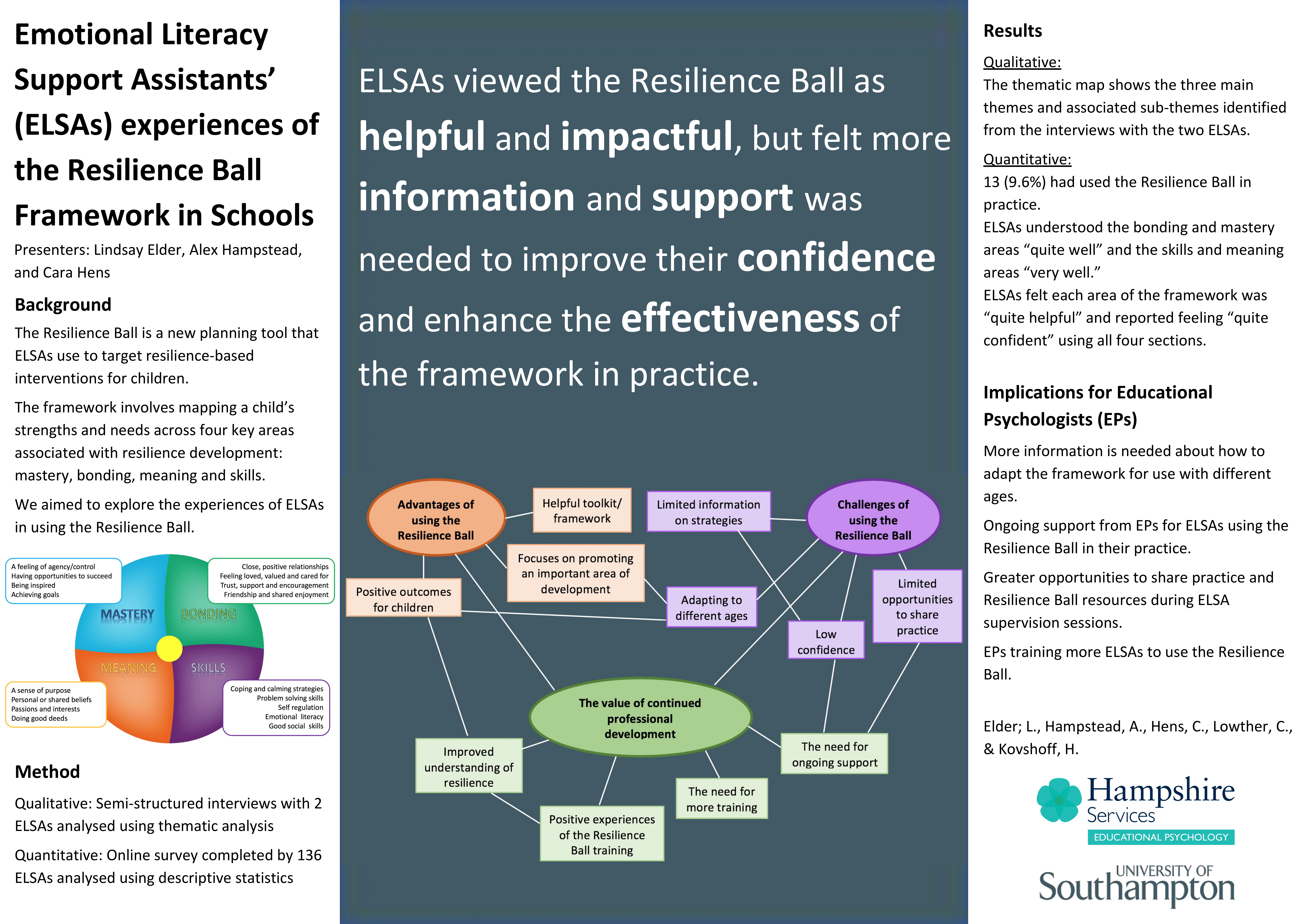Assignment: Small Scale Research Project Poster, presented at the 2022 Southampton Psychology Post Graduate Research Conference
Authors: Selma Vieira, Sophie-Jane Stanwyck, Ffion Davies, Cora Sargeant
Submitted: June 2022
There is limited research into equity of access to Educational Psychology Services (EPS) for marginalised groups. The academic outcomes of some minoritised groups can be lower than the average student e.g. Looked After Children (LAC), Pupil Premium (PP), Free School Meals (FSM) and some ethnically minoritised groups. Therefore, this study aimed to address the following research questions: How do minoritised group referral rates to the EPS compare to the local community population data? Is there any under or over representation in those accessing the traded EPS?
To cite this work, please use the following:
Vieira, S., Stanwyck, S., Davies, F. & Sargeant, C. (2020, June 23-24). Investigating equitable access of minoritised groups to EP services: A comparative analysis of county wide and service user data. [Poster presentation]. University of Southampton Post Graduate Research Conference (Psychology), Southampton, UK. https://bit.ly/3z9sy0z
https://twitter.com/SUEdPsy/status/1539990731833630720?ref_src=twsrc%5Etfw%7Ctwcamp%5Eembeddedtimeline%7Ctwterm%5Eprofile%3ASUEdPsy%7Ctwgr%5EeyJ0ZndfdHdlZXRfZWRpdF9iYWNrZW5kIjp7ImJ1Y2tldCI6Im9mZiIsInZlcnNpb24iOm51bGx9LCJ0ZndfcmVmc3JjX3Nlc3Npb24iOnsiYnVja2V0Ijoib2ZmIiwidmVyc2lvbiI6bnVsbH0sInRmd190d2VldF9yZXN1bHRfbWlncmF0aW9uXzEzOTc5Ijp7ImJ1Y2tldCI6InR3ZWV0X3Jlc3VsdCIsInZlcnNpb24iOm51bGx9LCJ0Zndfc2Vuc2l0aXZlX21lZGlhX2ludGVyc3RpdGlhbF8xMzk2MyI6eyJidWNrZXQiOiJpbnRlcnN0aXRpYWwiLCJ2ZXJzaW9uIjpudWxsfSwidGZ3X2V4cGVyaW1lbnRzX2Nvb2tpZV9leHBpcmF0aW9uIjp7ImJ1Y2tldCI6MTIwOTYwMCwidmVyc2lvbiI6bnVsbH0sInRmd19kdXBsaWNhdGVfc2NyaWJlc190b19zZXR0aW5ncyI6eyJidWNrZXQiOiJvZmYiLCJ2ZXJzaW9uIjpudWxsfSwidGZ3X3VzZXJfZm9sbG93X2ludGVudF8xNDQwNiI6eyJidWNrZXQiOiJmb2xsb3ciLCJ2ZXJzaW9uIjpudWxsfSwidGZ3X3R3ZWV0X2VkaXRfZnJvbnRlbmQiOnsiYnVja2V0Ijoib2ZmIiwidmVyc2lvbiI6bnVsbH19%7Ctwcon%5Etimelinechrome&ref_url=http%3A%2F%2Fblog.soton.ac.uk%2Fedpsych%2Fcategory%2Fpersonal-construct-psychology%2F





